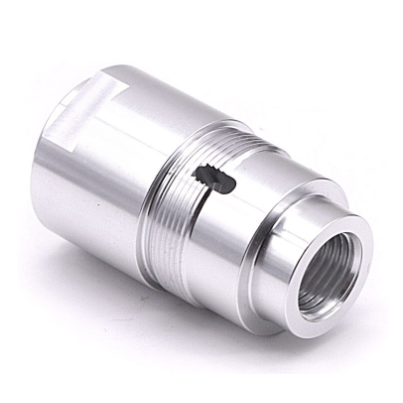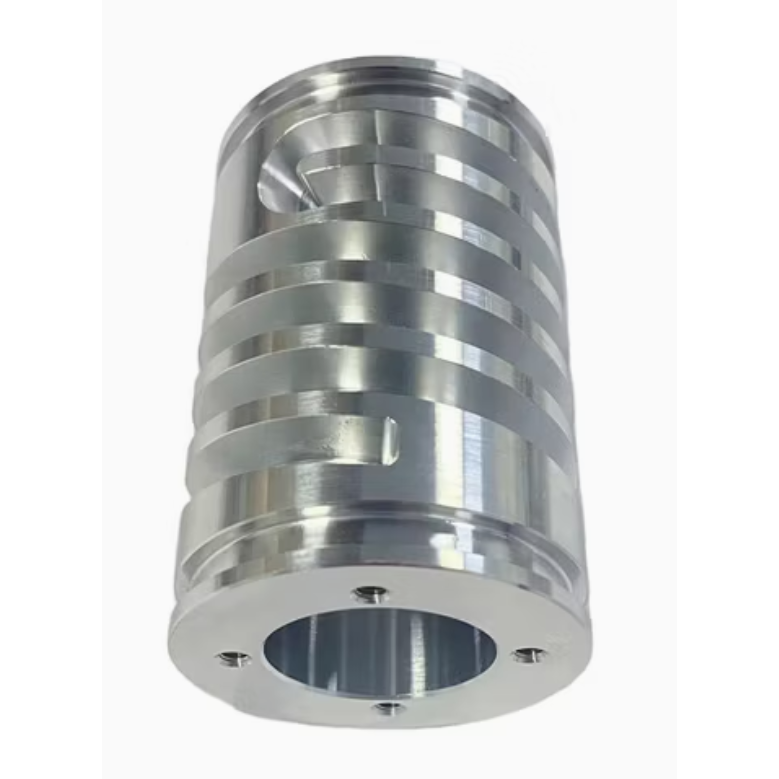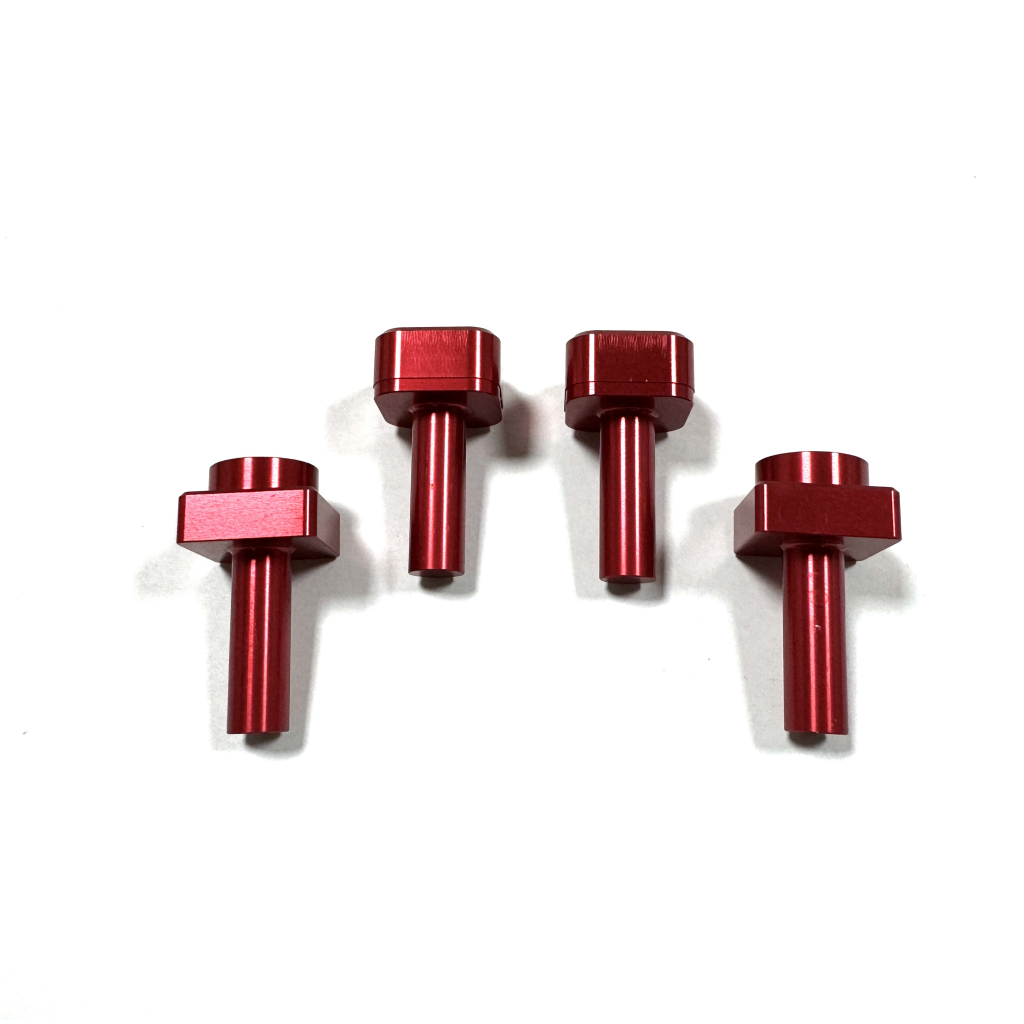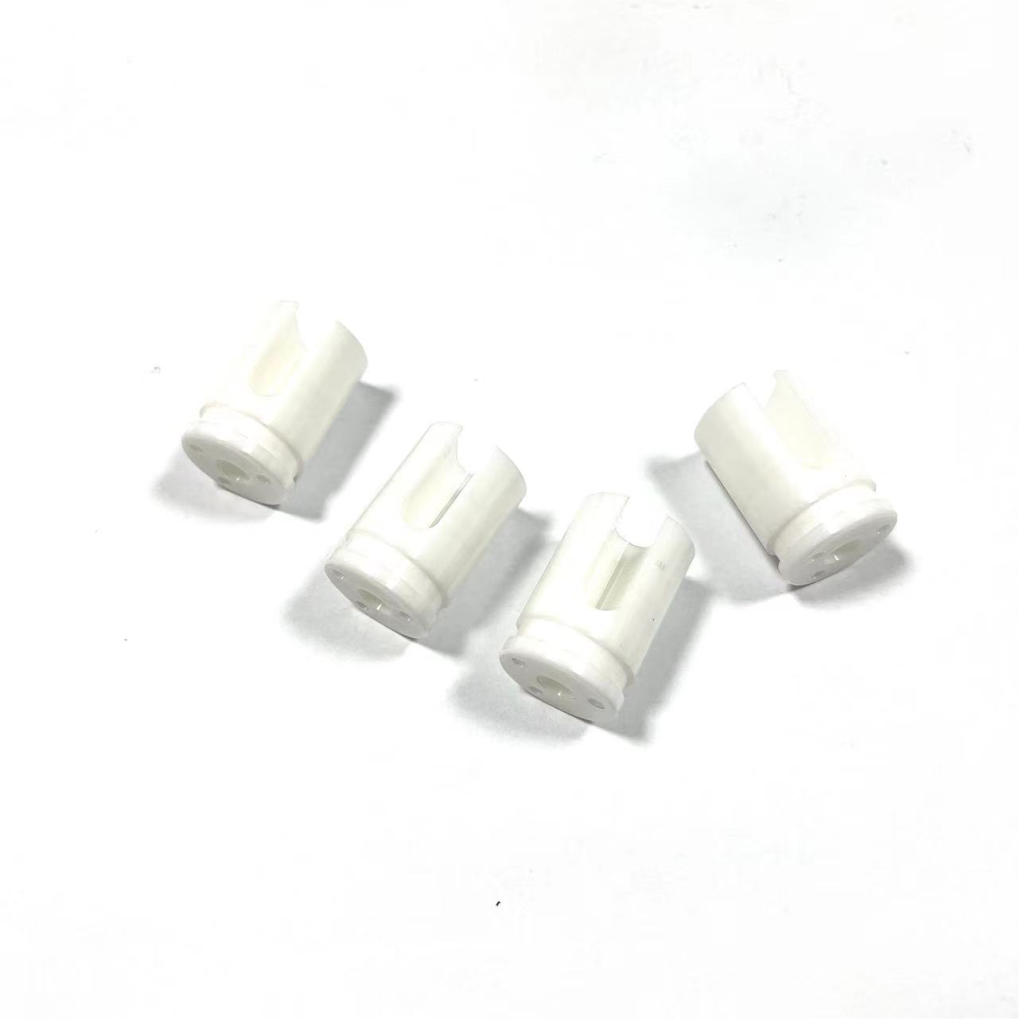CNC Turning Aluminum Parts
CNC Turning in Aluminum – China High-Quality CNC Machining Aluminum Parts
Aluminum is the most widely used non-ferrous metal, and its range of applications continues to expand. According to statistics, there are over 700,000 different aluminum products. Industries such as construction, transportation, and aerospace all have diverse requirements for aluminum. In the field of CNC turning, aluminum is also an essential material. Its lightweight, non-magnetic, and silver-colored properties, combined with its ability to be easily shaped into various forms, provide greater creativity and open up more possibilities in CNC turning.
JUNYU CNC Turning Aluminum Parts
CNC turning aluminum parts are widely used in various fields, and the demand for CNC-turned aluminum parts continues to grow. JUNYU is one of China’s leading suppliers of CNC turning services for aluminum parts. Our professional CNC team is dedicated to meeting the needs of our customers. Regardless of the complexity of the aluminum parts, we consistently deliver the highest quality products available in the market.
The advantages and characteristics of aluminum are as follows:
- Low Density: The density of aluminum is approximately 2.7g/cm³, which is only about one-third of steel’s density.
- High Plasticity: Aluminum has excellent ductility and can be easily shaped into various products through pressure processing methods such as extrusion and stretching.
- Corrosion Resistance: Aluminum is a highly negatively charged metal. A protective oxide film naturally forms on its surface or during anodic oxidation, providing much better corrosion resistance compared to steel.
- Easy to Strengthen: While pure aluminum has low strength, it can be strengthened through processes such as anodizing.
- Easy Surface Treatment: Surface treatments can enhance or modify the surface properties of aluminum. The anodizing process is well-established, stable, and widely used in aluminum product processing.
- Good Conductivity and Recyclability: Aluminum’s conductivity is second only to copper, and it is highly recyclable. The performance of aluminum remains unchanged after recycling, making it environmentally friendly and sustainable. The global recycling rate for aluminum exceeds 70%.
CNC Turning for Aluminum Materials Parts
Reliable CNC Milling Supplier for Premium Aluminum Parts – Made in
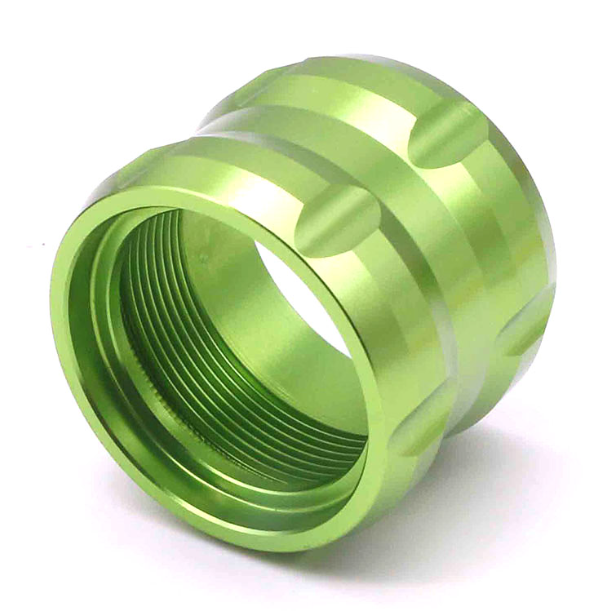
Aluminum 2024
2024 aluminum alloy is commonly used in aerospace, military, and other applications that require high strength and good corrosion resistance. It is enhanced with alloying elements such as copper, magnesium, and manganese to improve its mechanical properties. Although 2024 aluminum alloy is not as strong as 7075 aluminum, it is often selected when a high strength-to-weight ratio is required. 2024 aluminum alloy is heat treatable and non-magnetic.
| Density(p) | Electrical Conductivity | Young’s Modulus (E) | Elongation (ε) at break |
| 2.78 g/cm3 (0.1Ib/in²) | 30% | 73 GPa (10.6Msi) | 10-25% |
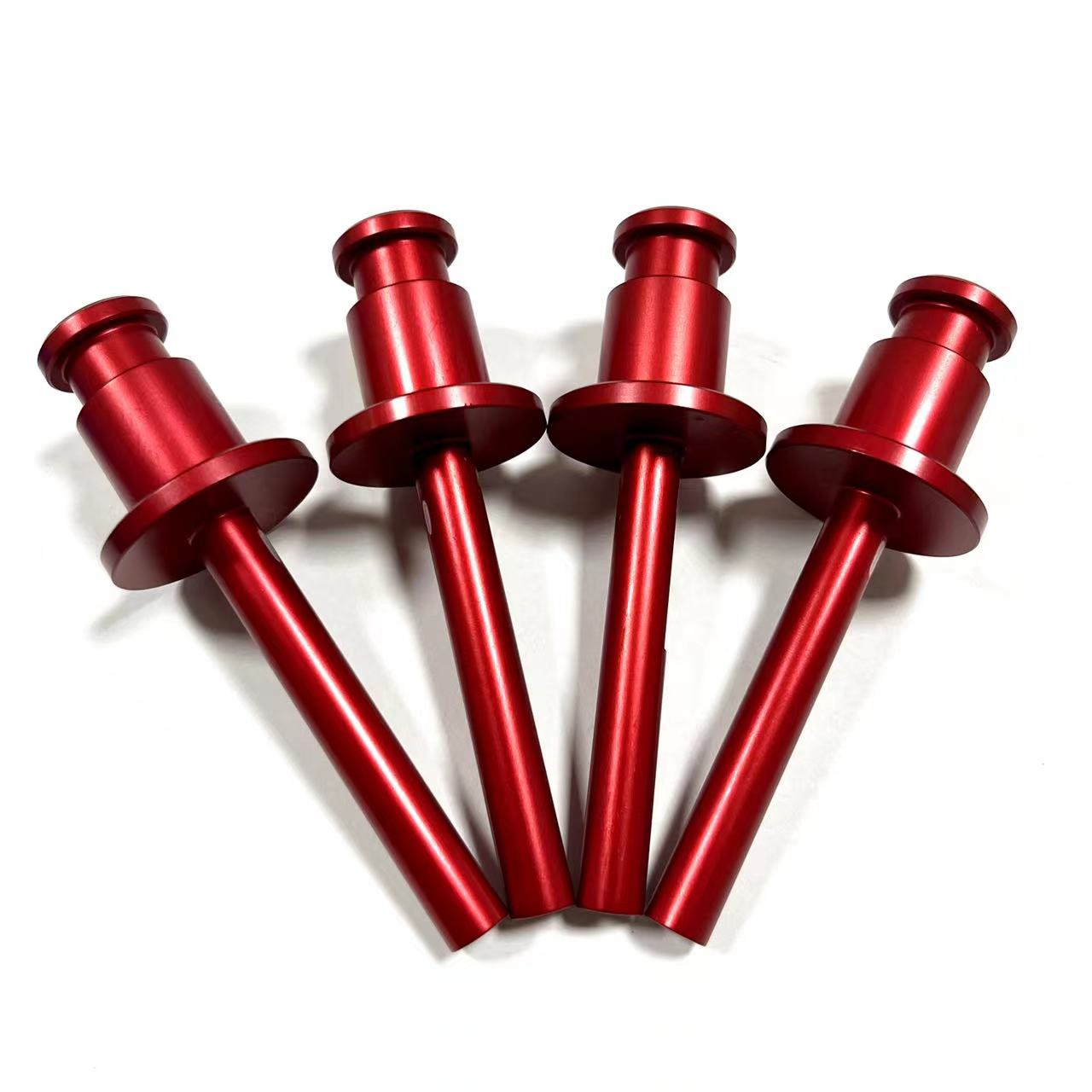
Aluminum 6061
The most commonly used aluminum alloy in our machining services is Aluminum 6061, a versatile and easy-to-machine metal. It offers excellent corrosion resistance, is non-magnetic, and can be heat treated.
| Tensile Strength,Yield (MPa) | Young’s Modulus (E) | Density(p) | Specific Heat Capacity (c) | Elongation (ε) at break |
| 124-290 MPa (18.0-42.1 ksi) | 68GPa (9,900 ksi) | 2.70 g/cm² | 897 J/(kg-K) | 12-25% |

Aluminum 6063
AA6063 aluminum is a common aluminum alloy, with magnesium and silicon as the primary alloying elements. Compared to 6061 aluminum, 6063 aluminum offers better corrosion resistance and formability. It is not suitable for high-strength applications but can be used for exterior railings and decorative trim. The advantage of CNC machined 6063 aluminum is that it is heat treatable and non-magnetic.
| Density(p) | Young’s modulus (E) | Tensile Strength (ot) | Elongation (ε) at break | Specific Heat Capacity (c) |
| 2.69 g/cm3 | 68.3 GPa (9,910 ksi) | 145-186 MPa (21.0-27.0 ksi) | 18-33% | 900 J/kg*K |
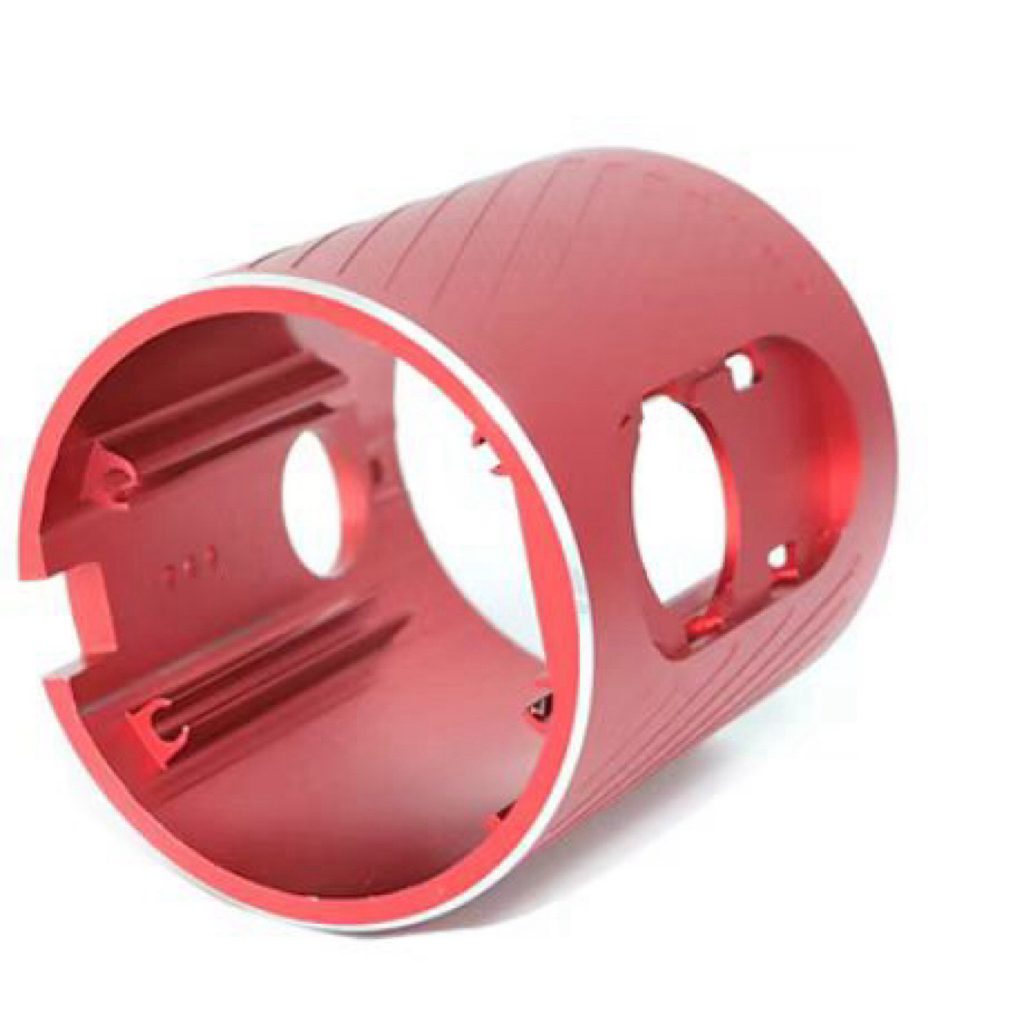
Aluminum 5052
5052 aluminum alloy is relatively easy to weld, with magnesium as the primary alloying element. It is easy to form, heat treatable, and non-magnetic. It has excellent corrosion resistance, especially in seawater and salt spray environments, making it the material of choice for applications with high corrosion resistance requirements in marine engineering (such as LNG tanker tanks). Its resistance to saltwater and salt spray allows it to withstand the challenges of marine environments, which is why it is widely used in marine, shipbuilding, and related industries.
Typical applications of 5052 aluminum alloy include marine, aerospace, construction, general sheet metal work, heat exchangers, fuel pipelines and tanks, flooring panels, streetlights, appliances, rivets, and wire.
| Density (p) | Volume Resis tivity(p) | Young’s Modulus (E) | Elongation (e) at break | Tensile Strength,Yield (MPa) |
| 2.68 g/cm3 | 49.3-49.9 nOhm*m | 69.3 GPa | 7-27% | 195-290 MPa (28.3—42.1 ksi) |
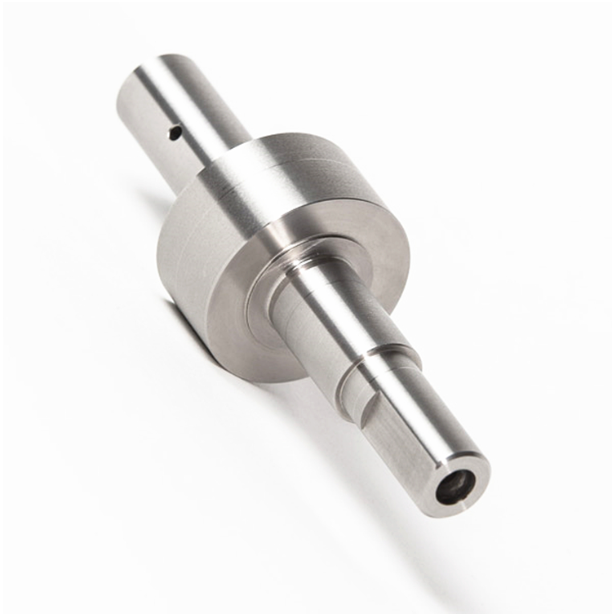
Aluminum 7075
7075 aluminum alloy is typically a high-strength, high-hardness alternative to 6061 aluminum alloy. It is widely used for parts in high-stress environments. Compared to 6061 aluminum, 7075 aluminum has slightly lower corrosion resistance. However, 7075 aluminum is non-magnetic and can be heat treated.
| Density (p) | Young’s modulus (E) | Tensile Strength (ot) | Elongation (ε) at break | Maximum Yield Strength |
| 2.81 g/cc (0.102 Ib/cu in) | 71.7 GPa (10,400 ksi) | 572 MPa (83.0 ksi) | 11% | 280 MPa (41 ksi) |

